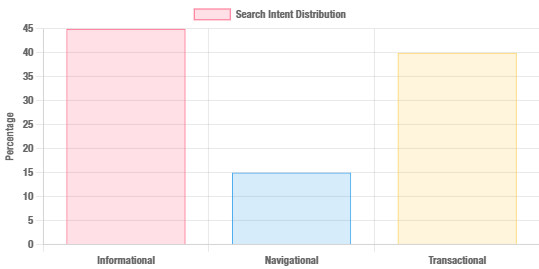Understanding Ranking Difficulty
Determining the ranking difficulty for a keyword is crucial in SEO strategy. It helps understand how challenging it will be to achieve high rankings in Google for target keywords. Before targeting a keyword, it's essential to assess the competition to avoid entering unwinnable battles.
Defining SEO Competitors
In the context of SEO, competitors are pages and websites that rank at the top of Google for target keywords. It's important to note that competitors can vary for each keyword targeted.
Key Factors in Assessing Ranking Difficulty
There are three main factors to consider when evaluating ranking difficulty:
- Search intent
- Metrics of top-ranking pages and websites
- Topical authority of top-ranking websites
Analyzing Search Intent
The first step is to examine the Search Engine Results Page (SERP) and determine if the top-ranking pages match the search intent. This can be done by reviewing the "3 C's of search intent" as discussed in previous lessons.
Pay close attention to the titles and URLs of ranking pages. If they include the primary keyword or a variation, they're likely targeting that keyword specifically.

Evaluating Metrics
Two key metrics to consider are:
- Number of referring domains: This represents the number of websites linking to a page. More quality backlinks generally indicate higher competitiveness.
- Website authority: Measured by metrics like Ahrefs' Domain Rating (DR), this represents the overall strength of a website's backlink profile.
When targeting keywords, it's generally advisable to go after those where your website's DR is in a similar range as the top-ranking pages, or at least one of the top-ranking pages is in the same range as your website.
Assessing Topical Authority
Google aims to rank pages from authoritative sources, which goes beyond just backlinks. Websites that are specifically focused on the topic of the keyword often have an advantage.
The Ranking Difficulty Checklist
Use this checklist to assess ranking difficulty:
- Do some of the top-ranking pages fail to closely match search intent?
- Can I get more quality backlinks than the top-ranking pages?
- Is my website in a similar DR range or higher than the top-ranking websites?
- Is my website equally or more topically authoritative than the top-ranking websites?
As a general rule, the more "yes" answers, the better the chances of ranking. However, it's important to remember that SEO is nuanced, and these guidelines should be used in conjunction with other factors like traffic potential and business value.
Practical Examples
To illustrate the process, let's consider two hypothetical examples for a golf instruction and equipment review website with a Domain Rating of 15:
Example 1: "Best Golf Grips"
- Search intent match: No (all top pages match well)
- Ability to get more backlinks: Yes
- Similar DR range: Yes
- Topical authority: Yes
Conclusion: This keyword appears to be worth targeting.
Example 2: "Best Putters"
- Search intent match: No (most pages match well)
- Ability to get more backlinks: Yes (for most, but not the top-ranking page)
- Similar DR range: No
- Topical authority: Yes
Conclusion: This keyword presents a more challenging opportunity, requiring careful consideration of other factors.
Understanding ranking difficulty is a crucial skill for SEO success. It's the first step towards achieving predictable results. With practice and experience, SEO practitioners can refine their ability to analyze keywords and make informed decisions about which opportunities to pursue.
